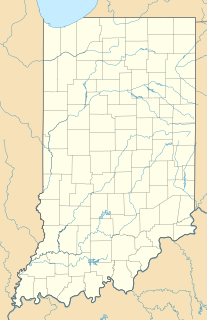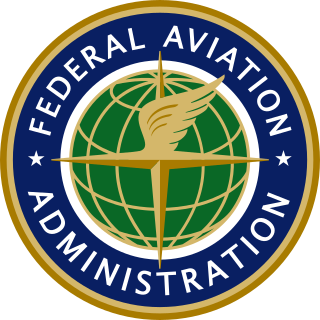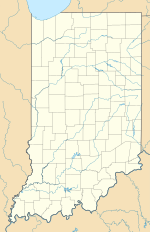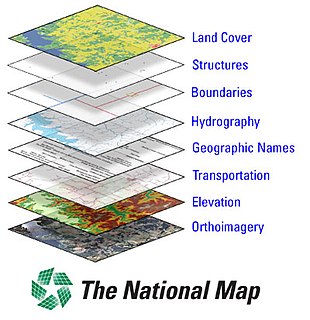
Fulton County Airport is two miles east of Rochester, in Fulton County, Indiana. It is owned by the Fulton County Airport Authority.

Griffith-Merrillville Airport is a public-use airport two miles east of Griffith, in Lake County, Indiana, United States. It is privately owned by Griffith Aviation, Inc.

Porter County Regional Airport is a public use airport one nautical mile (1.8 km) southeast of the central business district of Valparaiso, a city in Porter County, Indiana, United States. The Porter County Municipal Airport Authority owns the airport.

Michigan City Municipal Airport is a public use airport located three nautical miles east of the central business district of Michigan City, in LaPorte County, Indiana, United States. The airport is publicly owned by the Michigan City Board of Aviation Commissioners.

Greensburg Municipal Airport is a public use airport located two nautical miles (4 km) southwest of the central business district of Greensburg, a city in Decatur County, Indiana, United States. Owned by the Greensburg-Decatur County Board of Aviation Commissioners, it was formerly known as Greensburg-Decatur County Airport. It is included in the National Plan of Integrated Airport Systems for 2011–2015, which categorized it as a general aviation facility.

Delaware County Regional Airport is in Delaware County, Indiana three miles northwest of Muncie. Owned by the Delaware County Airport Authority, it was formerly Delaware County Airport and Johnson Field. The National Plan of Integrated Airport Systems for 2011–2015 categorized it as a general aviation facility.

Sullivan County Airport is a county-owned public-use airport located three nautical miles northwest of the central business district of Sullivan, a city in Sullivan County, Indiana, United States. It is included in the FAA's National Plan of Integrated Airport Systems for 2011–2015, which categorized it as a general aviation facility.

Virgil I. Grissom Municipal Airport is a public use airport located three nautical miles southeast of the central business district of Bedford, a city in Lawrence County, Indiana, United States.

Jasper County Airport is located one mile northwest of Rensselaer, in Jasper County, Indiana, United States.

Magnolia Municipal Airport is three miles southeast of Magnolia, in Columbia County, Arkansas.

Kokomo Municipal Airport is five miles northeast of Kokomo, in Howard County, Indiana. It is owned by the Kokomo Board of Aviation Commissioners. The FAA's National Plan of Integrated Airport Systems for 2009–2013 categorized it as a general aviation facility.

Ephraim–Gibraltar Airport is a public use airport located one nautical mile (2 km) southwest of the central business district of Ephraim, a village in Door County, Wisconsin, United States. The airport is owned by the Village of Ephraim and the Town of Gibraltar. It was formerly known as Ephraim-Fish Creek Airport.

Mettel Field is a public airport three miles north of Connersville, in Fayette County, Indiana. It is owned by the Connersville Board of Aviation Commissioners. The National Plan of Integrated Airport Systems for 2011–2015 categorized it as a general aviation facility.

Goshen Municipal Airport is a public use airport located three nautical miles (6 km) southeast of the central business district of Goshen, a city in Elkhart County, Indiana, United States. It is owned by the Goshen Board of Aviation Commissioners. This airport is included in the National Plan of Integrated Airport Systems for 2011–2015, which categorized it as a general aviation facility.

Richmond Municipal Airport is six miles southeast of Richmond, in Wayne County, Indiana. It is owned by the Richmond Board of Aviation Commissioners. The National Plan of Integrated Airport Systems for 2011–2015 called it a general aviation facility.

Plymouth Municipal Airport is a public use airport located two nautical miles (4 km) north of the central business district of Plymouth, a city in Marshall County, Indiana, United States. It is owned by the Plymouth Board of Aviation of Commissioners. This airport is included in the National Plan of Integrated Airport Systems for 2011–2015, which categorized it as a general aviation facility.

Wheeler Airport is a private use airport in Starke County, Indiana, United States. It is located six nautical miles (11 km) south of the central business district of Knox, Indiana, and was previously a public use airport.

Kentland Municipal Airport is a public use airport located one nautical mile (2 km) southeast of the central business district of Kentland, in Newton County, Indiana, United States. It is owned by the Kentland Board of Aviation Commissioners. This airport included in the National Plan of Integrated Airport Systems for 2011–2015, which categorized it as a general aviation facility.

Crawfordsville Regional Airport is a public use airport located 4 miles (6.4 km) south of the central business district of Crawfordsville, a city in Montgomery County, Indiana, United States. The airport was founded in June 1945 and is owned by the city. It is included in the Federal Aviation Administration (FAA) National Plan of Integrated Airport Systems for 2019–2023, in which it is categorized as a local general aviation facility.

Reedsburg Municipal Airport, is a city owned public use airport located 1 mile (2 km) east of the central business district of Reedsburg, Wisconsin, a city in Sauk County, Wisconsin, United States. It is included in the Federal Aviation Administration (FAA) National Plan of Integrated Airport Systems for 2019–2023, in which it is categorized as a local general aviation facility.












